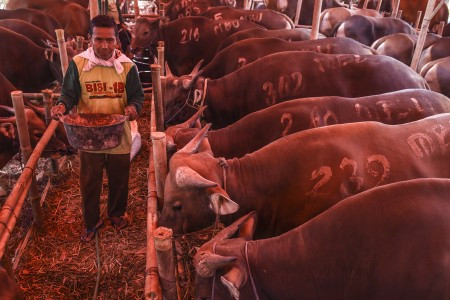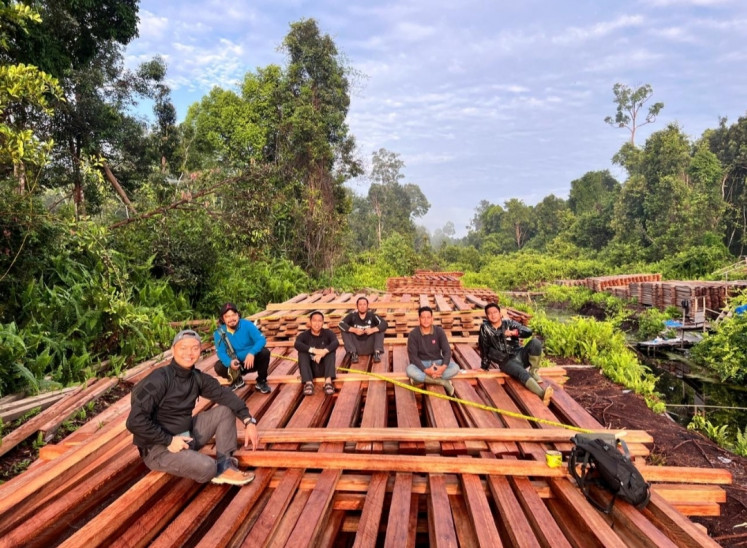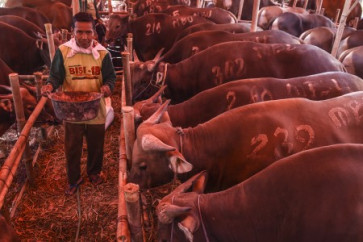Popular Reads
Top Results
Can't find what you're looking for?
View all search resultsPopular Reads
Top Results
Can't find what you're looking for?
View all search resultsFAO calls on countries to do more to tackle antimicrobial resistance
FAO representative in Indonesia and Timor Leste Rajendra Aryal said the rise of AMR globally threatened to make it harder for people seeking effective treatment for common infectious diseases such as pneumonia, tuberculosis and blood poisoning, as antibiotics had lost their efficacy.
Change text size
Gift Premium Articles
to Anyone
T
he Food and Agriculture Organization (FAO) has called on countries to do more to tackle antimicrobial resistance (AMR), which experts have referred to as a “silent pandemic” affecting human and animal health, warning that failure to properly address the issue would be costly.
According to the World Health Organization, AMR occurs when bacteria, viruses, fungi and parasites change over time and no longer respond effectively to medicines, making infections harder to treat and increasing the risk of disease spreading. The WHO has identified AMR as “one of the top 10 global public health threats facing humanity.”
FAO representative in Indonesia and Timor Leste Rajendra Aryal said the rise of AMR globally threatened to make it harder for people seeking effective treatment for common infectious diseases such as pneumonia, tuberculosis and blood poisoning, as antibiotics had lost their efficacy.
Failure to respond to AMR effectively would be costly for the global economy and would drive more people into poverty, Aryal said.
“Without action, by 2050, the global economy may lose more than US$6 trillion annually because of AMR. In just 10 years, 24 million more people may be forced into extreme poverty due to AMR, many of whom are [concentrated in] low-income countries, thereby increasing the number of people suffering from hunger or malnutrition,” said Aryal in Nusa Dua, Bali, on Wednesday, adding that globally, around 700,000 fatalities were estimated to be linked with AMR.
Read also: Spread the word, not the germs
Aryal’s statement came during World Antimicrobial Awareness Week, which was observed annually from Nov. 18 to 24. With a theme of “spread awareness, stop resistance”, this year’s World Antimicrobial Awareness Week aims to increase awareness of AMR and to encourage best practices between the public and policymakers to avoid further emergence and spread of drug-resistant infections, according to the WHO.



















